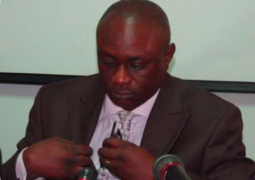No fewer than 35 health professionals drawn from all parts of CRR region on 27th September 2011 concluded a three-day capacity building session on FGM/C and its complications for pregnant women and during child birth, held at the Regional Health Team conference hall in Bansang CRR south.
Baba Njie the Regional Health Director for Central River Region said at the training course that FGM/C has long-term physical complications in women who are victims of FGM/C.
He noted that a community-based study found that physical complications, such as damage to the perineum or anus, vulvas tumors, keloids, as well as painful sex, infertility and prolapse were common in women who have undergone FGM/C.
Njie made this revelation in a paper presentation on FGM/C complications during pregnancy, child-birth and postpartum at the training session for health professionals on FGM/C and its complications on women.
According to him, there are several complications in FGM/C such as gynaecological complications, antenatal complications, complications in early labour and other gynaecological complications related to FGM/C.
Barra Njie Wassu Kafo training officer also revealed that a survey was conducted at all health facilities to know the level of understanding by health professionals of FGM/C, which showed that 50 percent of health workers do not have knowledge about FGM and its complications to the reproductive health system.
As a result, this program was specifically designed for health professionals on the identification and management of patients with any form of FGM/C related complications, and it is being supported by UNFPA, UNICEF, WHO and University Authonomat in
Wassu Kafo is an NGO focusing on research, and has a branch in
Ebba Secka regional public health nurse attending the training course said WHO 28 obstetric centers in six countries has shown the effects of FGM/C in pregnancy, including increased chances of excessive bleeding.
Arfang D Faye, coordinator of state enrolled mid wives at
He added that health workers should be equipped with the necessary knowledge and skills, in tackling patients who are victims of one form of FGM/C or another.
According to him, FGM is a cultural, social and physical issue and it needs tactical approaches in handling the issue, and that this training forum is one of the strategies in place.
Read Other Articles In Article (Archive)
Tallinding Man Docked
Jan 5, 2009, 8:26 AM
Carnegie MD Rearrested Whilst Leaving Court Premises
Apr 8, 2008, 5:56 AM


